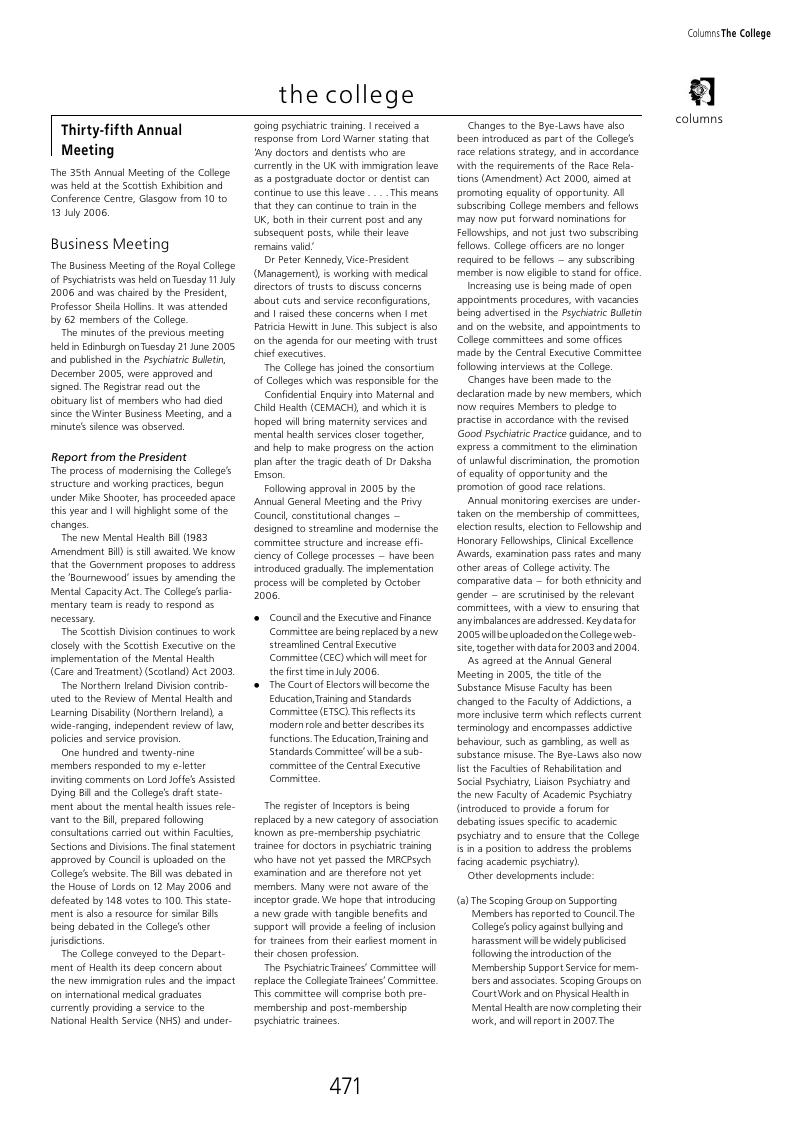No CrossRef data available.
Published online by Cambridge University Press: 02 January 2018

1. As used in this statement ‘interrogation’ refers to a deliberate attempt to elicit information from a detainee for the purposes of incriminating the detainee, identifying other persons who have committed or may be planning to commit acts of violence or other crimes, or otherwise obtaining information that is believed to be of value for criminal justice or national security purposes. It does not include interviews or other interactions with a detainee that have been appropriately authorised by a court or by lawyers instructed by or on behalf of the detainee, or that are conducted by or on behalf of correctional authorities with a prisoner serving a criminal sentence.
2. American Psychiatric Association position statement dealing with psychiatrists' participation in interrogation of detainees held in either military or civilian detention (http://www.psych.org/edu/other_res/lib_archives/archives/200601.pdf).
3. Surgeon General Policy Letter Number 01/05, 2005, London.
4. Principles of Medical Ethics in the Protection of Prisoners and Detainees against Torture and Other Cruel, Inhuman or DegradingTreatment (United Nations General Assembly Resolution 37/194, 1982, NewYork).
5. Council Statement, October 1988.
6. Madrid Declaration on Ethical Standards for Psychiatric Practice (World Psychiatric Association, 1996 Madrid, 1996 and Yokohama, 2002).
7. Good Medical Practice (General Medical Council, 2001, London).
8. Good Psychiatric Practice (2nd edn) (Royal College of Psychiatrists, 2004, London).
eLetters
No eLetters have been published for this article.